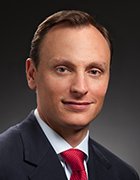
Getty Images
Infor CloudSuite ERP zeros in on industry specificity
In this Q&A, Infor CEO Kevin Samuelson and CTO Soma Somasundaram discuss the company's approach to cloud ERP, which focuses on multi-tenancy and deep industry specificity.
Infor's push to become a cloud-first company is marked by two distinguishing characteristics for customers.
This first is the ERP vendor's commitment to multi-tenant cloud ERP on AWS infrastructure. The second is its industry-specific approach to ERP. Rather than a monolithic product that customers have to customize, Infor builds industry customizations into its CloudSuite products for discrete manufacturing, distribution, food and beverage, healthcare, fashion and retail, and hospitality.
The SaaS approach combined with industry specificity enables Infor customers to implement systems and see an ROI quickly as well as have continuous innovation, according to Kevin Samuelson, CEO of New York-based Infor.
In this Q&A, Samuelson and Soma Somasundaram, Infor CTO and president of products, discuss Infor's approach to cloud ERP and what distinguishes its products from competitors in the crowded ERP market.
How does Infor's ERP approach differ from other ERP vendors?
 Kevin Samuelson
Kevin Samuelson
Kevin Samuelson: At the heart, what makes us different is this focus on industry. When the company was first started back in 2002, the idea was that what customers are most frustrated with is all the customizations, all the integrations, the time, the risk and cost of making software work. And then after that's all done, [it's the] value you get from it, the cost to actually use it, the inability to upgrade [that] made our category very challenging for companies.
Our perspective is that if we can go very deeply into industries to include all those industry-critical functions in the core product and have a product with as much out-of-the-box functionality as possible -- that de-risks a lot of these projects.
Like many other ERP companies, Infor began by primarily selling on-premises tech. How has Infor transitioned to being a cloud-first company?
Samuelson: The industry specificity was our thesis from the beginning, and then we invested $5 billion into rewriting new multi-tenant ERP and critical products with that industry specificity, which we've launched over the last few years. Industry specificity was always important, but it's even more essential when you move to the cloud and you're not able to do extensive customization. We don't have one product. We have one ERP system for healthcare; one for discrete manufacturing industries --automotive, aerospace, defense, industrial; a completely separate product for process manufacturing and distribution as well as the products around those. The ability to use the product, implement it very quickly, include all the essential elements that add value and get ROI quickly is where we're most differentiated.
Were CloudSuite products written for the cloud from scratch or rewritten legacy products?
 Soma Somasundaram
Soma Somasundaram
Soma Somasundaram: It depends on the product. In certain verticals, the IP in the legacy technology was not that great. We didn't think that taking that and refactoring it for the cloud was the best idea, so those were completely rewritten but using the design that we already know. In some other cases, the products were already on a journey to building it in Java or as a .Net architecture for midmarket products, so we just continued on with that. For the most part, the legacy code does not exist in the cloud.
How is Infor moving existing on-premises ERP customers to the cloud?
Samuelson: We have quite a large on-premises base, but we've moved a very large chunk of them to the cloud, and we continue to make that a focus. Our approach has been to make it financially compelling and make the journey as painless as possible. We're not super concerned with doing it at record speed, and we tell the customers that we're here when they're ready.
Are the Infor CloudSuite products true multi-tenant cloud?
Somasundaram: If somebody has a really large checkbook and they absolutely want to have single-tenant, we could technically do it, but there isn't a single instance of that so far. It's all multi-tenant.
Samuelson: If somebody wants super customized, hosted single-tenant product, they probably do go to SAP. The kind of companies we attract understand that there's a competitive advantage to having a simplified suite with agility, constant updates where they no longer have to do upgrades. Most CIOs now genuinely prefer getting on multi-tenant products and not having to go through customizations, upgrades and risk.
What's an example of some of the industry-specific differentiators for Infor CloudSuite products?
Samuelson: There's a lot of variability in the food and beverage industry. For example, if you make tomato soup, not every tomato is the same, so formulation is really important for them. You need to get the same consistency even though the ingredients you get may not all have the same consistency. So we put functionality into the product for formula optimization. You don't find that depth of functionality, which we call last mile, in a horizontal ERP like Oracle Fusion or SAP. We built it into the product, which we are able to do because that product only goes out to those industries.
Infor's cloud ERP products run exclusively on AWS. Why?
Samuelson: We started toward the end of 2012 to the beginning of 2013, and at that time AWS was way ahead in terms of the capabilities they had. We wanted our R&D dollars to ride on someone else's R&D dollars so we could take advantage of that innovation. AWS was clearly the leader, so we took advantage of that. Also, they already had regional data centers across the globe, and we run our suites in Virginia, London, Tokyo, Frankfurt, Sydney, Singapore, so they already had data centers in all those places. But there are segments of the market where there's some aversion to running on AWS, retail in particular. So where we have customers who want an alternative, we do have the ability to work with different hyperscalers like Microsoft to deliver our capabilities. But our underlying philosophy is we want to leverage the hyperscaler's capabilities to the fullest.
Jim O'Donnell is a TechTarget news writer who covers ERP and other enterprise applications for SearchSAP and SearchERP.






